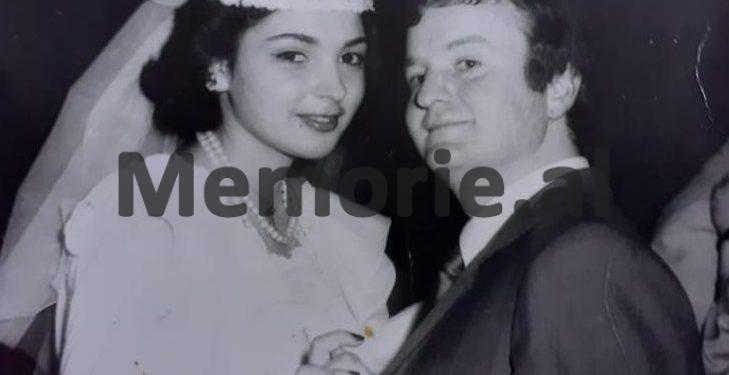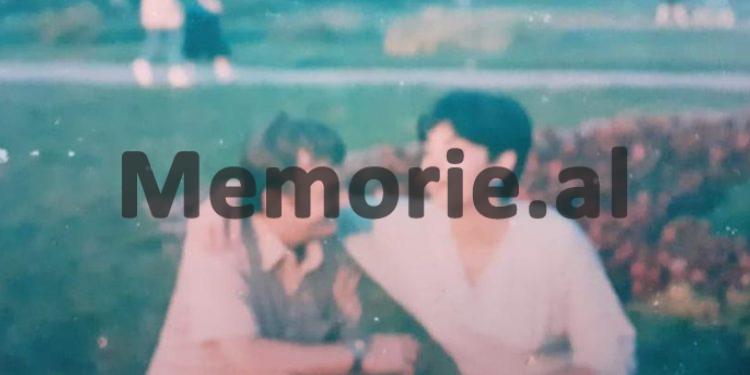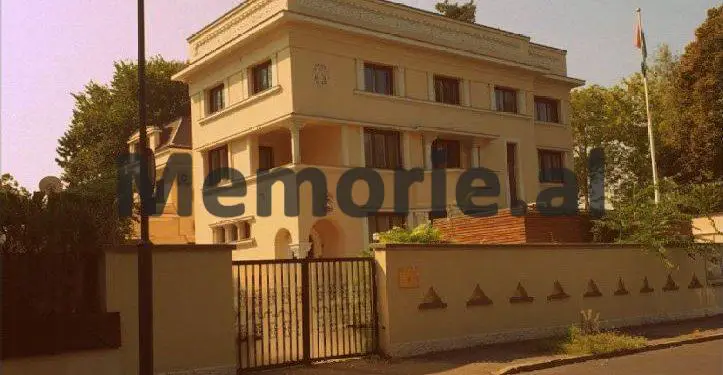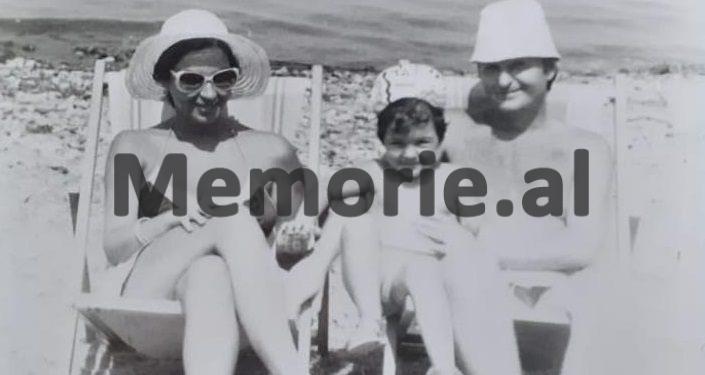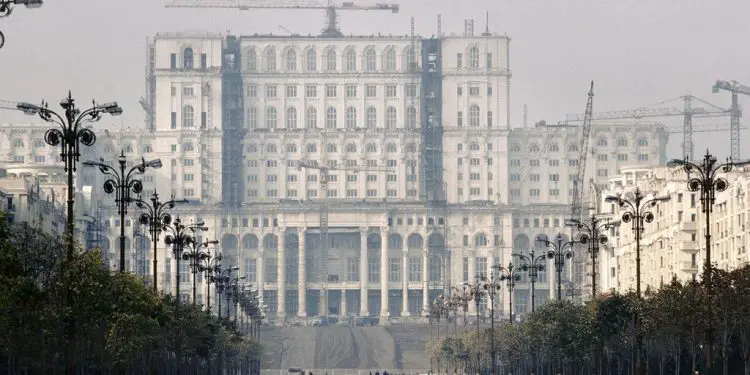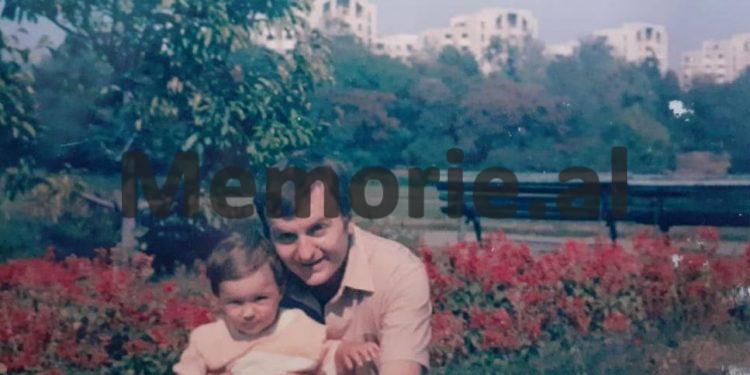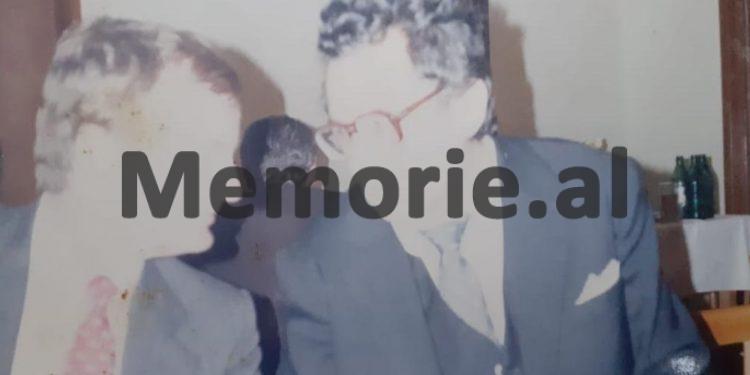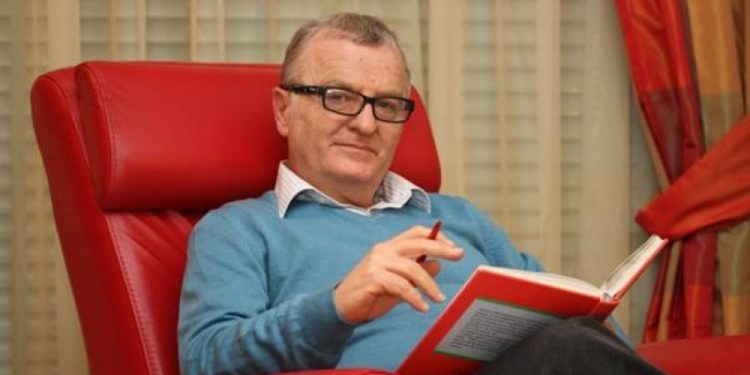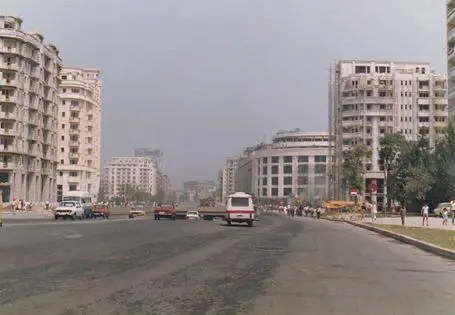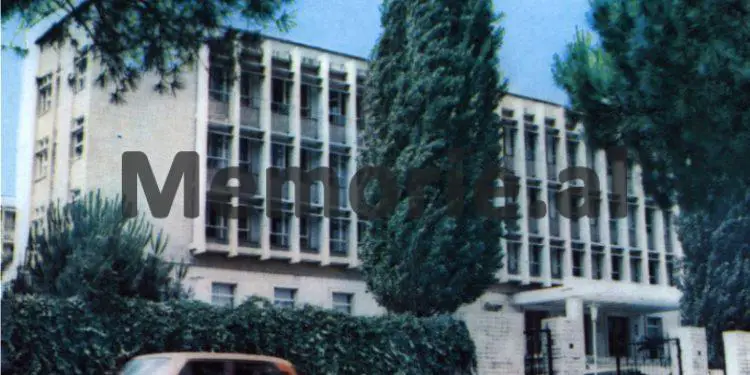Dashnor Kaloçi
The first part
Memorie.al/ publishes the unknown story of the mass protests of the Romanian people at the end of December 1989, which led to the overthrow of the communist leader, Nicolae Ceausescu, who had ruled the country since 1965, after the death of George Dezhit. Rare testimonies of the well-known journalist and moderator, Rezar Xhaxhiu, who from 1987 to March 1991, served as Press and Culture Attaché at that embassy, which exclusively tells Memorie.al, making public for the first time, how the staff of that embassy, led by Ambassador Pirro Vito, experienced the sensational events of the mass protests of the Romanian people, where for several days in a row, the staff of that diplomatic headquarters was forced to take up arms and take up positions in different parts of that building? What messages did they receive from official Tirana through the Ministry of Foreign Affairs and how did they get through the most difficult moment, when the Albanian embassy was surrounded by Army tanks commanded by General Vasile Milea who had joined the protesters, after the news broke that the dictator Romanian, Ceausescu, with his wife, Helena, were sheltered in the basements and tunnels of that embassy?!
“I remember that all the relatives of the staff of our embassy, had gathered together and stood in the basements of that building, under a real uncertainty and panic, of what could happen in the following hours! Meanwhile, that part of our families who were sheltered, outside the embassy building, experienced twice and more with fear, the battle of several days on the streets of Bucharest. I remember my friend, whom I found every time I returned from the embassy, terrified and stiffened by panic, fear, and insecurity. At the time, we had a 6-month-old daughter, and I often found them both under the window sill, to escape the bullets coming from everywhere. It was fired from all sides, and those who were most treacherous were the Securitates USLA (Special Anti-Terror Unit) snipers, which were placed on the terraces of palaces and official buildings. But in many cases, it was not known who was shooting?! It was Christmas Eve, December 25, 1989, when we learned of Ceausescu’s arrest. He and his wife, Elena, were stopped by an army checkpoint near Tirgovishte. “During this moment, the presidential couple Ceausescu, was heading to an airport, trying to escape from Romania, and seek political asylum in a country friendly with Romania.”
This is how the well-known journalist and moderator Rezar Xhaxhiu remembers, among other things, the sensational events that took place three decades ago in Romania, where at the end of December 1989, due to the mass protests of the Romanian people in the capital of the country. , Bucharest, communist leader Nicolae Ceausescu and his wife, Helena, were detained at a checkpoint on the outskirts of a small town on the border with Hungary in an attempt to flee the country. executed after a ‘flash’ trial!
Located in the ranks of the diplomatic service (as Attaché of the Press and Culture), near the Albanian Embassy in Bucharest since the beginning of 1987, as an eyewitness, Xhaxhiu, had the opportunity to follow closely the protests of the Romanian people, which led to the overthrow of dictator Nicolae Ceausescu, who had ruled that great Balkan country since 1965, following the death of George Dej.
How was Rezar Xhahiu selected to serve in the ranks of Albanian diplomacy, who were the other colleagues he worked with from 1987 until March ’91 when he returned to his homeland, how did the work at that diplomatic headquarters work? and how the staff of that embassy, led by Ambassador Pirro Vito, experienced the sensational events of the mass protests of the Romanian people at the end of December 1989, where for several days, the staff of that diplomatic headquarters was forced to arm themselves and took positions in different parts of that building?
What messages did they receive from official Tirana through the Ministry of Foreign Affairs and how did they get through the most difficult moment when the Albanian embassy was surrounded by Army tanks commanded by General Vasile Milea, after the news broke that Romanian dictator Ceausescu and his wife his, Helena, were sheltered in the basements and tunnels of that embassy?!
Regarding these and other unknown events that took place in the Albanian embassy accredited in Bucharest in the period, 1987-1991, Rezar Xhaxhiu tells us for the first time, in this exclusive interview for Memorie.al, which will continue in some consecutive numbers.
Mr. Xhaxhiu, what are the beginnings of your education?
I finished high school sometime in 1979 at the “Sami Frashëri” gymnasium in Tirana. Afterwards, I completed my higher studies in the branch of Albanian Literature at the Faculty of History and Philology from October 1980 until July 1984.
Who were some of your professors at the Faculty of Language and Literature?
Who should I remind you of first? Who should I talk about, the great one, Shaban Demiraj, the polyglot Fatmir Agalliu, or Ali Xhiku, the wonderful professor, Floresha Dadon, Vehbi Bala, Llambro Ruci, Rahmi Memushi, or my father, Muzafer Xhaxhiu, etc., etc.
What memories do you have of these professors?
They are a group of professors of the Department of Language and Literature to whom I am still grateful to this day. Because if I am who I am (but not only me), I can be called a product of that wonderful generation of honored and respected people and professors.
Remember some of your friends who studied at this faculty?
There are really many. Look, in that generation of students, many quality poets and creators came out. I would mention here: Teodor Kekon, Besa Myftiun, Rita Petron, Behar Gjoka, Eqerem Bramon, Shaban Sinani, Vahid Hyzoti, etc. They then excelled with their pens, some in poetry and some in prose, some in literary criticism, and so on.
After completing your studies and graduation, how did you get involved in the diplomacy sector?
At that time, it became necessary to renew the system of diplomacy, being supplied, with “new blood”, after a selection that was made somewhere, five or ten years ago from the ranks of the working class. So, the first course for future diplomats was created, where I got involved sometime in 1985.
What were the criteria of the time which also included you in diplomacy?
There were not many criteria. First you had to have a clean biography, then you also had to be a student with relatively good or very good results, as well as have a pure moral and social attitude and figure. You should definitely be married.
From which faculties would these students be selected, who would then continue diplomacy?
The selection was made mainly by the faculties of Social Sciences, such as Philology, Political Science, Economics, from the branches of History, Foreign Languages, etc.
Can you remember some of the names of these students who would become future diplomats?
Why not, there are many but I am mentioning some, such as: Kastriot Robo, Llesh Kola, Marko Bello, Arben Rama, Artur Kuko, Petraq Proko, Sokol Neçaj, etc.
You mentioned a while ago that you took a course on the basic rules of diplomacy, where did this course take place?
The course took place both in the premises of the Faculty of Philology and in the premises of the Ministry of Foreign Affairs of that time.
And how many people participated in this course?
In our first course we were somewhere between 10 -12 students, who were selected from the faculties mentioned above.
Can you recall some of the programs you would develop in the diplomacy course?
The programs were of a wide range, such as: Foreign Policy, History of the Balkans, History of Europe, but also Political Science, as well as the History of the Albanian Labor Party, certainly seen in a different prism. There were also more specific hours and lectures, such as Communication, or Diplomatic Protocol.
What did these subjects address more specifically?
These subjects, for example, dealt with how you should behave at a dinner reception, or a formal lunch. Putting people at the table, arranging plates, forks and anything else that had to do with diplomatic protocol.
Who were some of the senior exponents of the MFA who would give you these lectures?
We received lectures from professors at the University of Tirana, as well as from employees of the Ministry of Foreign Affairs. I remember that we had as lecturers and Deputy Ministers like: Sokrat Plaka, directors of directors, like Piro Bita, Xenophon Krisafi, or Jovan Andoni, who gave us ‘Behavior and protocol’, a subject that is very dear to us (because it was concrete and extremely necessary). But as lecturers, there were many other employees of certain ranks of the Ministry of Foreign Affairs of that period.
After completing this course, in which sector of the Ministry of Foreign Affairs, would you be assigned?
I was assigned to the Balkan Directorate as a clerk, where I worked for several months before receiving the appointment. It was absolutely a wonderful experience to have colleagues like Mirosh Sako, Hasan Haxhia, Leonidha Mërtiri, etc., who were employees and career diplomats, but also perfect connoisseurs of the region, and relations with neighbors, especially Yugoslavia and Greece…
Who communicated your appointment in Romania?
It was the Chief of Staff of the Ministry of Foreign Affairs, Jani Polena. This was a classic apparatchik, a typical administration employee, of those who could work in the administrations of any kind of regime.
And how do you remember that moment?
I remember it must have been the end of 1986, when Polena called me to her office and announced my appointment, saying: ‘The party has decided that you should serve as a diplomat at our embassy in Romania, in the post of Secretary. (Attaché) for Press and Culture “.
Why were you assigned to this place?
I cannot say exactly why I was assigned to this place. But this may have happened, perhaps also due to the fact that I had worked for several months in the Balkan Directorate at the Ministry of Foreign Affairs, which included Romania in its jurisdiction. Another possible reason could be the fact that I was also a good connoisseur of the French language and at that time, French had a great linguistic reach, in official Romania, but not only there./Memorie.al
Continues in the next issue




